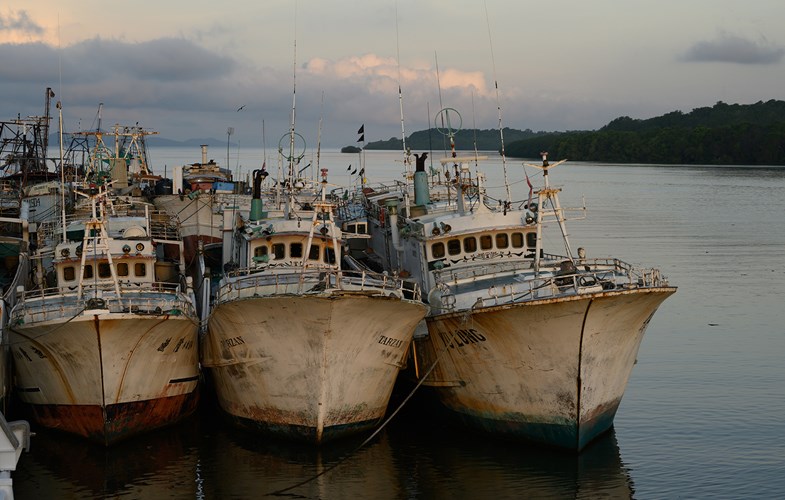

IUU fishing endangers marine ecosystems worldwide and is a major threat to the livelihoods of many people
Illegal, Unreported and Unregulated (IUU) fishing
The consequences of IUU fishing are frightening. On the one hand, by overfishing the seas, which contributes to species extinctions, throwing the ocean ecosystem out of balance and destroying large parts of it.
On the other hand, it disadvantages local and legally working fishermen. This can wreck a fishing community not only economically, but also socially. Because IUU fishing is not limited to one type of fishing. Whether in shallow coastal waters, inland waters or the deep sea, in the most remote marine areas. IUU fishing is particularly prevalent in developing countries, where the development of fisheries management is still inadequate, or where there are insufficient resources to control the laws.
The main motivation for IUU fishing? To maximize profits in particular through:
- Lack of licences
- Disregarding regulations and fishing quotas
- Using closed fishing areas, e.g. fishing in MPAs
- Catching overfished fish stocks
- Fishing for endangered species
- Use of prohibited fishing methods
- Use of prohibited practices e.g. shark finning
Where operators use IUU fishing, it is not uncommon to find massive violations of human rights. You can read more about this in our article Human Rights.
Some figures show the extent of IUU fishing. It accounts for an estimated 30% of global fisheries' production. In some places even up to 50 %. That is about 11-26 million tonnes of fish per year. However, these are estimates, as there are hardly any official figures. This uncertainty also applies to the species that are fished illegally. This makes it particularly difficult for species protection and the management of fish stocks. If one does not know exactly what is being caught, where and in what numbers, it is hardly possible to take the right measures. One thing, however, is very certain. IUU fishing is one of the biggest problems.
The EU, with 24%, one of the largest importers of fisheries products, has also recognized this and is trying to lead by example in the fight against IUU fishing. The EU's IUU Regulation, which has been in force since 2010, aims to grant access to the EU market only to those fisheries products that have a catch certificate and comply with the Regulation's guidelines. Only legal fishery products are to enter the EU. At the same time, the regulation contains penalties for EU companies involved in the illicit trade.
The regulation has the following three key components:
Catch certificate scheme:
- Only goods that are accompanied by a catch certificate (showing legal origin) may be imported into the EU
Card procedure:
- The regulation allows the EU to put pressure on other countries to take action against IUU fishing. The card system can be used to issue warnings and even ban imports into the EU.
Penalties for EU citizens:
- EU citizens involved in or supporting IUU fishing face severe penalties. And this applies worldwide, regardless of the flag under which they go to sea.
This EU regulation is probably the most ambitious law of its kind and has already had an impact in some cases. Nevertheless, there is still room for improvement. The EU and its influential countries, such as Germany, have the means to combat IUU fishing and must continue to do their part.
Sharkproject is working together with other NGOs to end IUU fishing and is trying to exert influence at the national and international political level.
Goal
By means of social media campaigns, support of partner campaigns or signing open letters, Sharkproject tries to exert political influence and inform the public.
The main demands are:
- Absolute transparency and complete documentation in fisheries
- 100% monitoring of all fishing activities
- Global regulation on fisheries and marine protected areas
Information
- It is estimated that IUU fishing accounts for up to 31% of fisheries production worldwide; in some areas even up to 50%.
- 11 - 26 million tonnes of fish are caught illegally each year
- Financial losses from IUU fishing are estimated at $7-20 billion annually worldwide.
- 6.7 million people in West Africa depend directly on fishing for their livelihoods, and their livelihoods are threatened by IUU fishing by foreign fleets.
- Estimates put the annual losses in West Africa at a good 1.3 billion dollars
Involved partners
Cooperation with various international marine and species conservation organisations.

